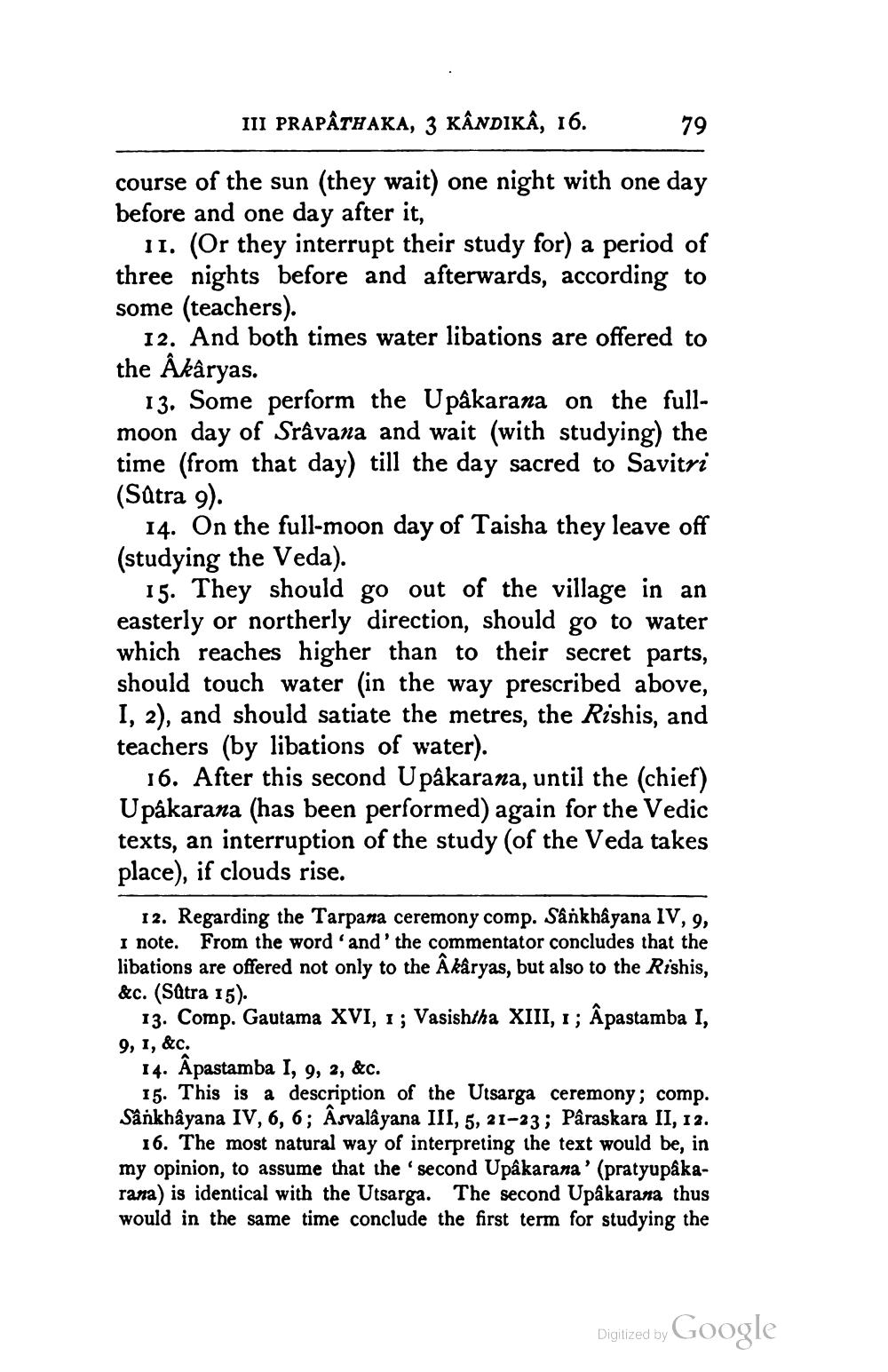________________
III PRAPATHAKA, 3 KANDIKA, 16.
course of the sun (they wait) one night with one day before and one day after it,
11. (Or they interrupt their study for) a period of three nights before and afterwards, according to some (teachers).
12. And both times water libations are offered to the Âkâryas.
13. Some perform the Upâkarana on the fullmoon day of Srâvana and wait (with studying) the time (from that day) till the day sacred to Savitri (Sûtra 9).
14. On the full-moon day of Taisha they leave off (studying the Veda).
15. They should go out of the village in an easterly or northerly direction, should go to water which reaches higher than to their secret parts, should touch water (in the way prescribed above, I, 2), and should satiate the metres, the Rishis, and teachers (by libations of water).
16. After this second Upâkarana, until the (chief) Upakarana (has been performed) again for the Vedic texts, an interruption of the study (of the Veda takes place), if clouds rise.
79
12. Regarding the Tarpana ceremony comp. Sânkhâyana IV, 9, I note. From the word 'and' the commentator concludes that the
libations are offered not only to the Âkâryas, but also to the Rishis, &c. (Sutra 15).
13. Comp. Gautama XVI, 1; Vasishtha XIII, 1; Âpastamba I,
9, I, &c.
14. Âpastamba I, 9, 2, &c.
15. This is a description of the Utsarga ceremony; comp. Sankhâyana IV, 6, 6; Âsvalâyana III, 5, 21-23; Pâraskara II, 12.
16. The most natural way of interpreting the text would be, in my opinion, to assume that the 'second Upâkarana' (pratyupâkarana) is identical with the Utsarga. The second Upâkarana thus would in the same time conclude the first term for studying the
Digitized by
Google




